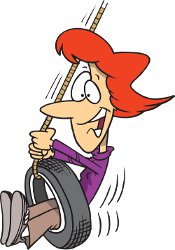Future Tenses Worksheets
These future tenses
worksheets give you a great opportunity to practice using the different
future tenses in English. There are illustrated explanations and
exercises with the simple future, the future with going to, the future
progressive, the future perfect, and the future perfect progressive.
Since there are many tenses used in the future, it's important to
review often and get all the practice you can!
Click Here for Step-by-Step Rules, Stories and Exercises to Practice All English Tenses
Do you know how to use the future tenses in English? There are several of them!
They are:
- the simple
future
- the future
progressive
- the future
perfect
- the future
perfect progressive
- going to
We use some present tenses to express the future in English, but there are also future tenses that describe actions we expect to happen in the future. First review the examples below and then complete the exercises.
Simple future
The basic future tense in English is the simple future, but we can't use it in all cases!Review the simple future page for a full explanation. Here is a brief overview.
We use the simple future for:
- Future "facts"
- The sun will rise at 5:47am tomorrow.
- Meredith will
be 26 this Friday.
- Promises
- My boss will call you right back.
- I will send
you the receipt.
- "Instant" decisions (made in the moment) and offers
- I will have the fish.
- I will not (won't) listen to any more of this nonsense!
- Here, I will
help you with those bags.
- Predictions
- There will be a lot of confusion about this decision.
- They will not (won't) arrive on time.

*Note: we can also use "going to" for making predictions about the future.
For example: They are not going to arrive on time.
We must use "going to" if we are making a prediction based on conditions that we are observing at that moment.
For example:
Correct: His pencil is going to fall on the floor!
Incorrect: His pencil will fall on the floor!
You can review the uses and formation of "going to" on this page.
Future progressive
We use the future progressive tense to talk about actions that will be in progress at a certain moment or time period in the future.For example:

- He will be eating that ice cream cone in about two minutes.
- Will he be eating pizza after that?
- No, he won't be eating anything after that big ice cream cone! He will be too full!
Future perfect
We use the future perfect tense to talk about actions that will be completed before a moment or another action in the future. We use it especially if the first action has an effect on the later moment or action.For example:

- He will have finished all his work by lunch time.
- Will he have started some new projects by then?
- No, he will not have started any new projects before lunch because he has lots of other work to finish.
Future perfect progressive
We use the future perfect progressive tense to talk about actions that will go on for a period of time and be completed before a moment or another action in the future.This is a less common tense in English.
For example:

- She will have been swinging on that tire swing for three hours by 5 o'clock.
- Will she have been laughing the whole time?
- No, she will not have been laughing the whole time. She will also have been thinking about life.
So those are the future tenses in English. Now let's practice!
Exercise A: Simple future - promises
Rewrite the following promises using the simple future.1. My sister promises to pay you back next week.
2. I promise to read your report before the end of the day.
3. I promise not to open the box.
4. I promise to try new things this year.
5. We promise not to build any more new buildings.

Exercise B: Simple future - predictions and future "facts"
Complete the sentences using the verb in parentheses () and write whether the sentence is a prediction or a future fact.1.

He __________ all those books! (read)
This is a: __________.
2.

She __________ 13 tomorrow! (be)
This is a: __________.
3.

She __________ at all this summer! (not / study)
This is a: __________.
4.

He __________ better soon. (feel)
This is a: __________.
5.

The sun __________ at 7:12pm today. (set)
This is a: __________.
Exercise C: Instant decisions and offers
Write a sentence for each situation and decide if it is a decision or an offer.1. You are on an airplane. The flight attendant offers you pasta or beef for lunch. You want the pasta.
I __________ the pasta. (have).
This is a(n): __________.
2. You are driving your car on a rainy day. You see your friend waiting for a bus in the rain. You tell her you will take her in your car.
I __________ you a ride! (give)
This is a(n): __________.
3. You have friends over for dinner. They take off their coats at the door. You say you will hang their coats for them.
Here, I __________ your coats. (take)
This is a(n): __________.
4. You are in a room, and you want to leave. There are two doors. You say you will exit through the door on the right.
I __________ through this door, I think. (go)
This is a(n): __________.
5. The telephone rings at your home. You are the closest person to it. You tell the other people in the house that you can answer.
I __________ it! (get)
This is a(n): __________.

Exercise D: Future progressive
Read the story below. Then answer the questions using the future progressive.Phyllis has a lovely, relaxing Saturday planned. She will get up at 8:00am and cook breakfast. She will eat her breakfast and read the newspaper from 8:30am to 9:00am. Then she will have a shower.
At 10:00am, she will go outside. She will take a long walk until 11:00am.
From 11:00am to 12:30pm, she will read a book by the lake. She loves to read!
At 12:30pm, she will walk to her favorite restaurant by the lake. She will have a long lunch from 12:45pm to 1:45pm with a good friend who will meet her there.
They will go to a café for coffee. They will talk from 2:00pm until 4:00pm. Then they will say goodbye, and each of them will go home.

1. What will Phyllis be doing at 8:45am on Saturday?
She ________________________________________________.
2. Will Phyllis be reading the newspaper at 10:45am?
No, she _______________ the newspaper. She _______________ a long walk.
3. What will Phyllis be doing at 12:15pm?
She ________________________________________________.
4. What will Phyllis and her friend be doing at 1pm?
They _______________ a long lunch.
5. Will Phyllis and her friend be doing exercise at 3:00pm?
No, they _______________ exercise. They _______________.
Exercise E: Future perfect vs. future perfect continuous
Complete the sentences with the verb in parentheses (). Decide if the verb should be in the future perfect of the future perfect continuous tense.1.

He _______________ all that paperwork before the end of the day. (not / finish)
2.

He _______________ for a whole hour before he gets bored. (dive)
3.

He _______________ out of the water before the shark gets him! (get)
4.

She _______________ for ten hours by the time her shift is finished. (run)
5.

He _______________ at everyone in the office before he calms down. (yell)
Answer Key
Exercise A: Simple future - promises1. My sister will pay you back next week.
2. I will read your report before the end of the day.
3. I will not open the box. / I won't open the box.
4. I will try new things this year.
5. We will not build any more new buildings. / We won't build any more new buildings.
Exercise B: Simple future - predictions and future "facts"
1. He will read all those books!
This is a: prediction.
2. She will be 13 tomorrow!
This is a: future fact.
3. She will not study at all this summer!
This is a: prediction.
4. He will feel better soon.
This is a: prediction.
5. The sun will set at 7:12pm today.
This is a: future fact.
Exercise C: Instant decisions and offers
1. I will have the pasta.
This is a: decision.
2. I will give you a ride!
This is an: offer.
3. Here, I will take your coats.
This is an: offer.
4. I will go through this door, I think.
This is a: decision.
5. I will get it!
This is an: offer.
Exercise D: Future progressive
1. What will Phyllis be doing at 8:45am on Saturday?
She will be having breakfast.
2. Will Phyllis be reading the newspaper at 10:45am?
No, she won't be reading the newspaper. She will be taking a long walk.
3. What will Phyllis be doing at 12:15pm?
She will be reading.
4. What will Phyllis and her friend be doing at 1pm?
They will be having a long lunch.
5. Will Phyllis and her friend be doing exercise at 3:00pm?
No, they won't be doing exercise. They will be talking.
Exercise E: Future perfect vs. future perfect continuous
1. He will not have finished all that paperwork before the end of the day.
2. He will have been diving for a whole hour before he gets bored.
3. He will have gotten out of the water before the shark gets him!
4. She will have been running for ten hours by the time her shift is finished.
5. He will have yelled at everyone in the office before he calms down.
Get Updates, Special Offers, and English Resources
Download your FREE GIFT (the first two chapters of
English Short Stories Book and Workbook)
as soon as you join!

By submitting your email, you consent to receiving updates and newsletters from us and to the sharing of your personal data with third parties for the purposes of sending you communications. We will not spam you. You can unsubscribe at any time. For more information, please see our privacy policy.
Return
from Future Tenses Worksheets to English Grammar Exercises
Return to
Really Learn
English Home Page





